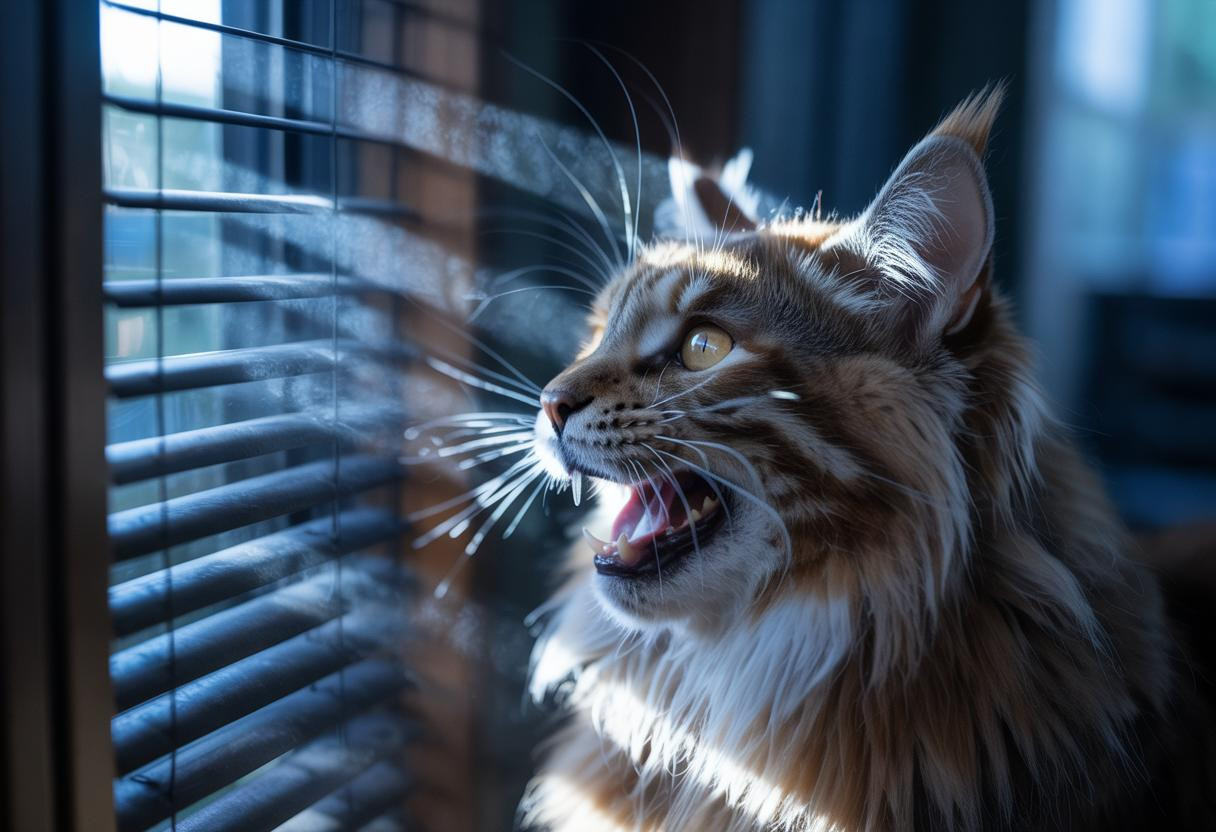Have you ever experienced that eerie feeling when your cat fixates on a closed door, howling relentlessly at seemingly nothing? This peculiar feline behavior left me baffled last winter when my Maine Coon, Oliver, spent three consecutive nights screaming at our basement door. Despite multiple investigations revealing absolutely nothing on the other side, his intense focus continued, leaving me wondering if cats truly possess a sixth sense or if something more scientific was at play.
The science behind mysterious door screaming
According to feline behaviorist Dr. Mikel Delgado, cats possess sensory abilities far beyond our human capabilities. “Cats can detect ultrasonic frequencies up to 64,000 Hz, compared to humans who max out around 20,000 Hz,” explains Dr. Delgado. “What appears to be your cat screaming at ‘nothing’ might actually be their response to sounds completely imperceptible to the human ear.”
Your cat’s seemingly paranormal behavior could be triggered by rodents in the walls, insects behind baseboards, or even mechanical vibrations from appliances. This sensory superpower acts like an evolutionary radar system—similar to how submarines detect underwater movement long before visual confirmation.
Medical reasons that might explain the behavior
Before assuming your cat has detected a ghost, consider having them evaluated by a veterinarian. Excessive vocalization at doors or walls can indicate underlying medical conditions, particularly in older cats.
- Cognitive dysfunction syndrome (feline dementia)
- Hyperthyroidism causing increased agitation
- Sensory decline triggering confusion
- Pain or discomfort being expressed vocally
When anxiety drives the door obsession
Just as humans experience anxiety from technology, cats develop their own stress responses. “Cats are territorial creatures who view closed doors as frustrating barriers to their domain,” notes veterinary behaviorist Dr. Lisa Radosta. Many cats vocalize at doors due to separation anxiety or resource restriction, especially if something valuable to them (their human, food, or favorite resting spot) lies on the other side.
Could previous experiences explain the behavior?
Just as dogs remember past experiences with specific objects, cats maintain powerful associative memories. If your cat once encountered another animal or experienced something frightening near that door, they might continue reacting to the memory rather than current reality.
Strategies to manage door-directed vocalization
When faced with this puzzling behavior, consider these practical approaches:
- Provide environmental enrichment with interactive toys
- Create predictable daily routines to reduce anxiety
- Consider pheromone diffusers for stress reduction
- Install a cat door if appropriate for the space
The fascinating world of feline perception
Much like the recent discovery of living colossal squid changed our understanding of ocean life, studying feline sensory perception reveals how differently they experience our shared environment.
Some cat owners have found success with natural calming supplements, while others swear by premium nutrition. Similar to how specialized dog treats have gained popularity, feline-specific calming formulas are becoming increasingly available.
What if we tried listening to our cats instead?
Perhaps the most fascinating approach is simply acknowledging that our cats perceive the world differently than we do. Just as changing hair care routines can lead to surprising results, adjusting how we respond to our cats’ behaviors might transform our relationship with them. Instead of dismissing their door fixations as bizarre, we might recognize them as valuable communication signals about their environment—signals we’re only beginning to understand.
